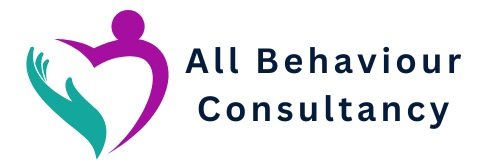We specialise in Autism support
Do you need help or support for a child with autism?
Our Behaviour Specialists provide solutions for children and young adults on the Autism spectrum who have difficulties in social interaction, communication and play skills at home and/or in school.
Children and young people with Autism carry unique strengths that set them apart.
With remarkable focus, they often excel in detail-oriented tasks, bringing a fresh perspective to problem-solving. Furthermore, their unwavering honesty, passion for specific interests, and ability to remember information for extended periods truly underline the diverse talents they bring to the table.
However, in our neuro-typical world, Autistic individuals can experience many difficulties as the world does not accommodate their differences.
That is the reason why our business thrives - we ensure every child and young adult feels comfortable engaging and thriving in today’s society.
Experience the transformative support of our team of ABA Specialists, dedicated to empowering children on the spectrum who face challenges at home and in school.
Early Support for kids with Autism
Autism, also known as ASD (Autism Spectrum Disorder) is regarded as a spectrum disorder that can range from mild to severe.
Autistic people are able to learn and develop key life skills when provided with the right support and treatment plan.
Early intervention is key for supporting children with autism and for managing challenging behaviour.
Autism Spectrum Disorder (ASD)
Autism spectrum disorder (ASD) is a neurodevelopmental disorder that impacts the functioning and development of the brain. The causes of autism are unknown. The effects of autism and the severity of symptoms are different in each person; which is why it is referred to as a spectrum.
With a range of abilities and characteristics, no two individuals appear to be affected in the same way. Generally, ASD is diagnosed in childhood. About 1 in 68 children are diagnosed with autism according to the Centre for Disease Control and prevention. ASD is three to four times more common in boys than girls.
Autism may affect:
• Interactions with others in social situations: They may have difficulty making friends, understanding relationships and social hierarchies, and difficulty reading facial expressions.
• Communication with others: Individuals with autism may focus the conversation on very few topic areas, using repetitive speech and some have either none or very limited verbal language.
• Repetitive body movements and behaviours: Sometimes referred to as self-stimulatory behaviours, these can include hand flapping, spinning or finger flicking.
• Behavioural presentation: For example, a child or adult may exhibit behaviours that are challenging for others to manage and can affect other people around them.
• Overall development: Children and adults with ASD may be behind peer levels, which can create complex challenges in school and later on life.
How does Autism affect individuals?
Autism Therapies - ABA & Positive Behaviour Support
With the right support and early intervention, individuals with ASD can lead full and purposeful lives.
However, without effective support, they may have difficulties gaining independence, maintaining a good quality of life, as well as developing and maintaining appropriate peer relationships and sustaining employment.
ABA therapy allows children with Autism to thrive and aims to support them with the same opportunities as other children.

Early diagnosis and intervention have been found to be effective in teaching children skills such as language, communication, play and social skills.
Our early intervention programs focus on using play as a way of teaching skills. We use the child’s motivations to ensure learning is fun and functional – known as Natural Environment Teaching (NET).
We provide individualised parent training programs that aim to teach parents and carers about positive behaviour support strategies while increasing confidence in their ability to help their children and improve relationships.
We run social skills groups which meet weekly during term time only. Our aim is to support children to interact and use functional communication skills in situations by learning how their behaviour affects others.
We currently offer services to schools, families CCGs, Independent care providers and charities which support individuals with Autism Spectrum Disorder.
The following evidence-based strategies can support individuals with ASD and other developmental challanges to have greater independence in life.
Applied Behaviour Analysis/Verbal behaviour (ABA/VB)
Positive Behaviour Support (PBS)
Speech and Language Therapy (SALT)
Occupational Therapy (OT)
Bio-medical/Nutritional Support
We teach communication using the principles of Verbal Behaviour ensuring communication is functional, age-appropriate and taught through play.
We promote independence by teaching self-help skills and age-appropriate functional daily living skills. We plan for generalisation and work program to decrease prompts as early as possible to ensure individuals are being set up for success and to be as independent as they can be.
We teach skills and behaviours that are important for individuals, their families and caregivers.

How does a Behaviour Analyst support individuals with Autism?
Behavioural Analysis principles have been found to be effective in supporting people with ASD.
ABA enables kids with autism to develop language, academic, social and play skills, whilst also reducing behaviours that challenge.
Behaviour Analysts examine the reasons behind these challenging behaviours. We use Positive Behaviour Support to develop techniques that address the underlying cause of the behaviour.
There is a large volume of research studies behind ABA, showing how these techniques can improve communication, social relationships, play, self-care and employment in individuals with ASD.
Studies have shown that children with autism experience significant improvements in learning, reasoning, communication and flexibility when participating in ABA programs.
Some pre-schoolers acquire enough sufficient skills to participate in regular classrooms with little or no additional support.
Other children may learn important skills but still need additional support in the classroom.








